- Home
- Health Condition
Medicine For Cervical Pain
Medicine For Cervical Pain
- Total Items (49)
 RX
RXBiozobid Tablet 10's
₹135
MRP ₹180
25% off
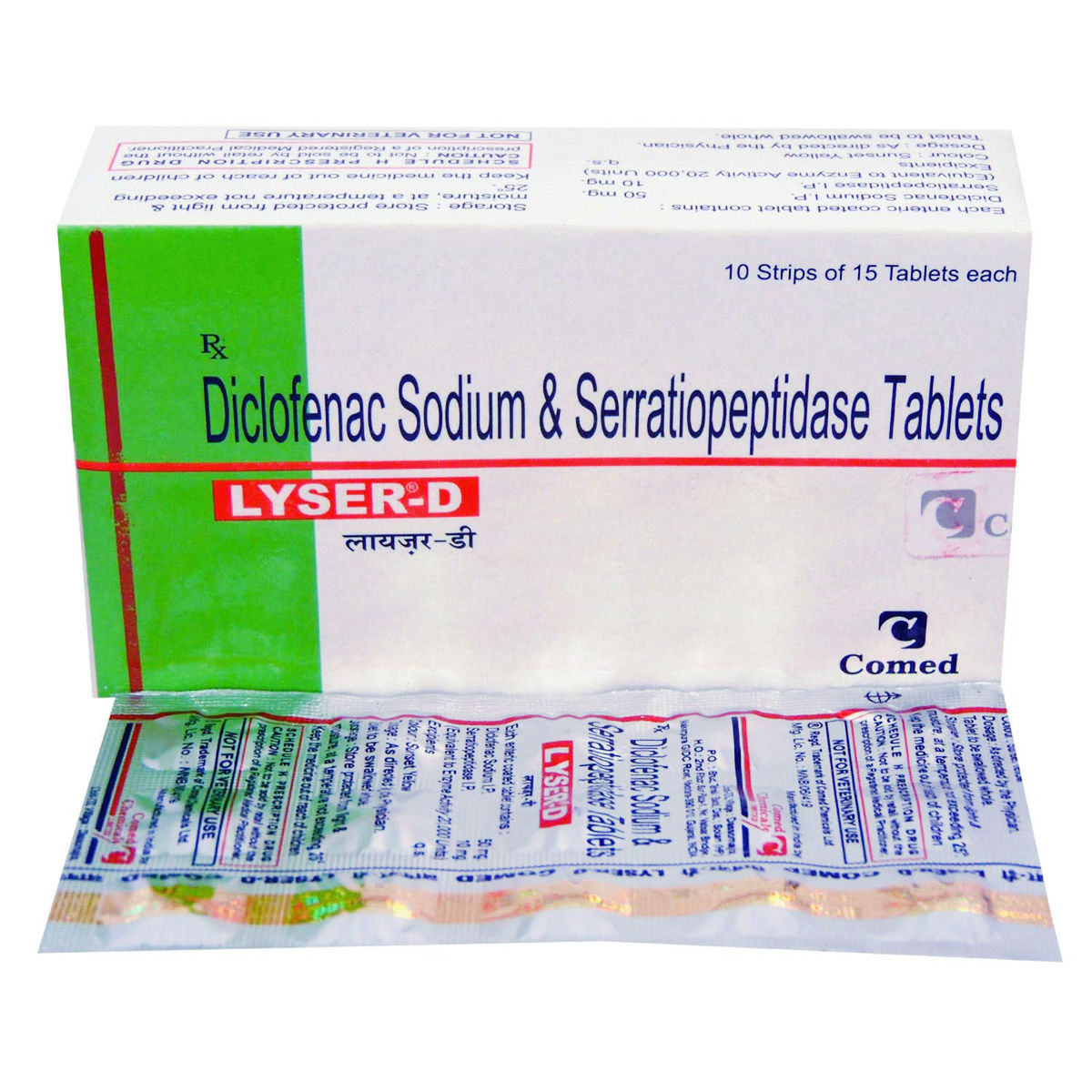 RX
RXLyser-D Tablet 15's
₹255.20
MRP ₹283.50
10% off
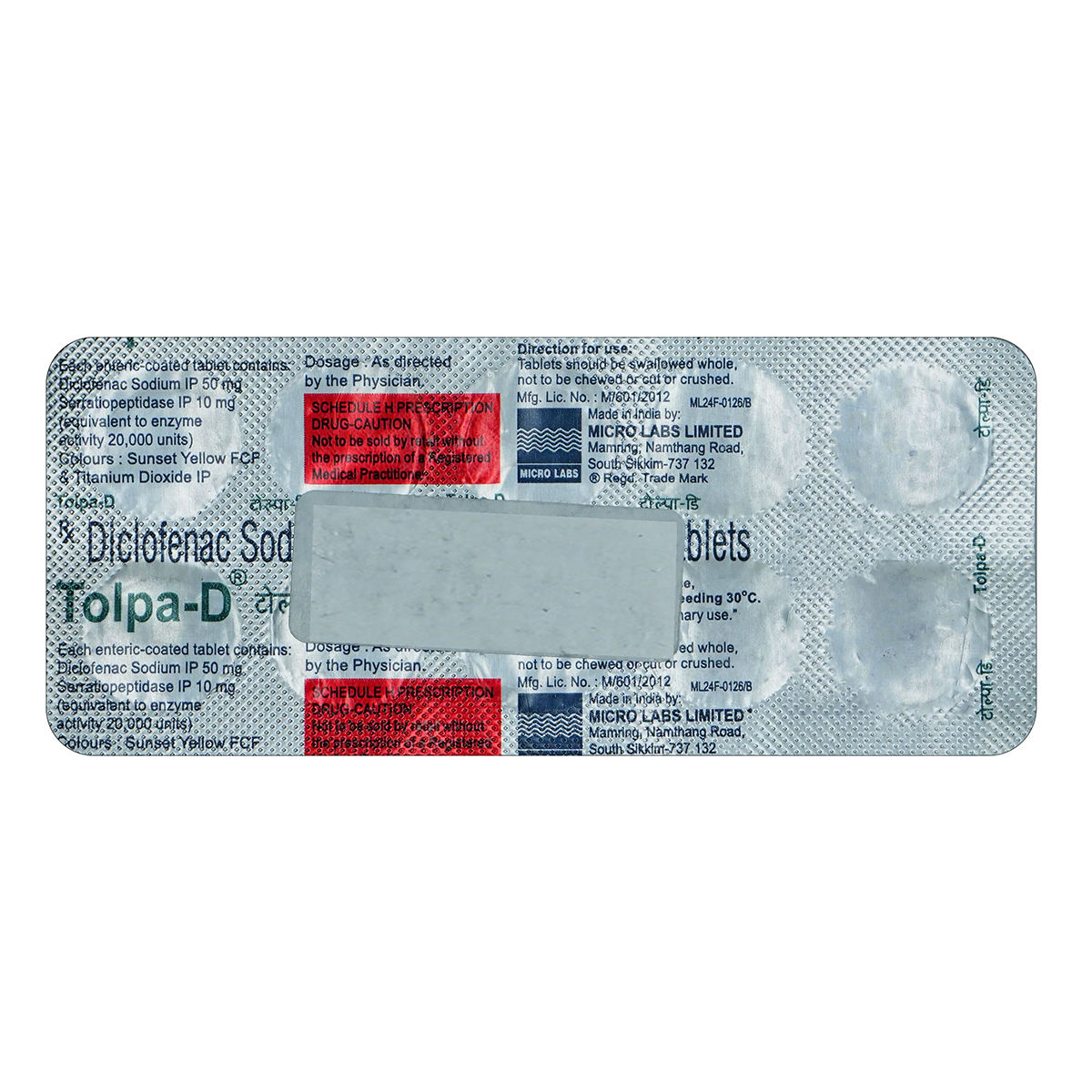 RX
RXTolpa D Tablet 10's
₹150.30
MRP ₹167
10% off
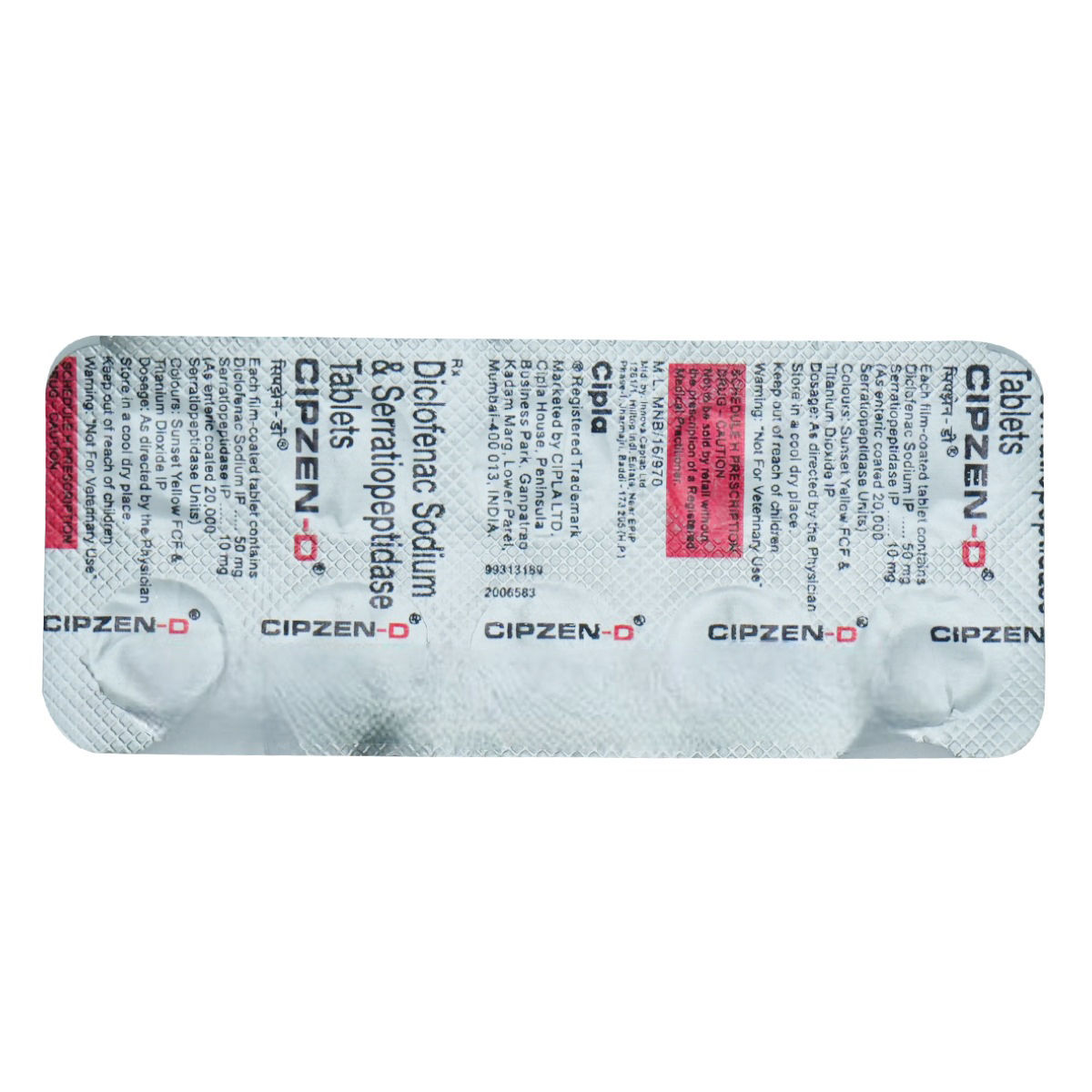 RX
RXCipzen-D Tablet 10's
₹117.80
MRP ₹157
25% off
 RX
RXZinase-D 50 mg/10 mg Tablet 10's
₹141.30
MRP ₹157
10% off
 RX
RXKineto-DP Capsule 10's
₹84.60
MRP ₹94
10% off
 RX
RXResolve-D Tablet 10's
₹137.70
MRP ₹153
10% off
 RX
RXSerax-D Tablet 10's
₹130.50
MRP ₹145
10% off
 RX
RXDivon S Tablet 10's
₹128.70
MRP ₹143
10% off
 RX
RXSPADE D TABLET
₹137.70
MRP ₹153
10% off
 RX
RXDyrect Tablet 10's
₹130.50
MRP ₹145
10% off
 RX
RXAlde-Plus Capsule 10's
₹107.10
MRP ₹119
10% off
 RX
RXFlanzen D Tablet 15's
₹203.90
MRP ₹226.50
10% off
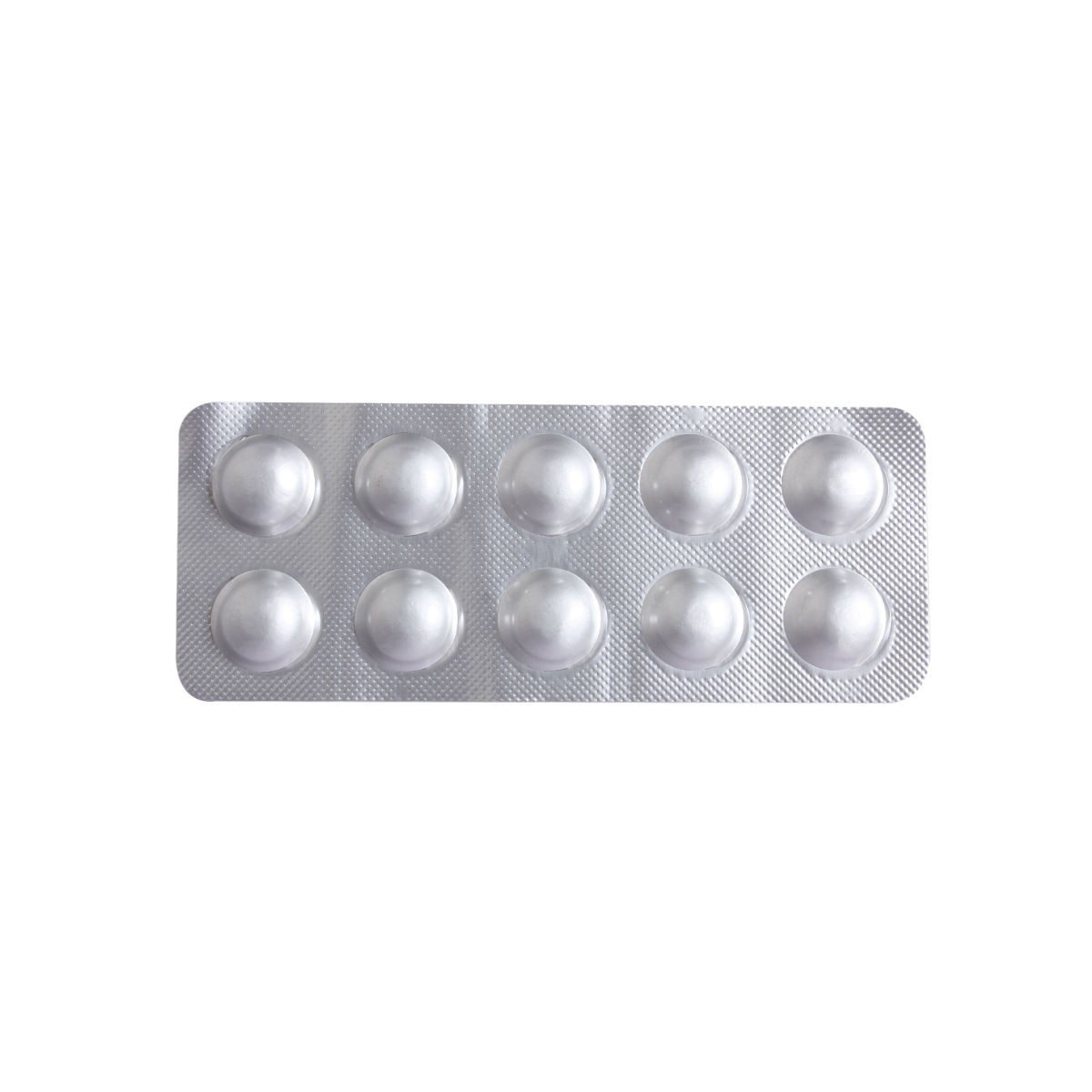 RX
RXSeradic Tablet 10's
₹119.30
MRP ₹132.50
10% off
 RX
RXHcp Nil Tablet 10's
₹112.50
MRP ₹125
10% off
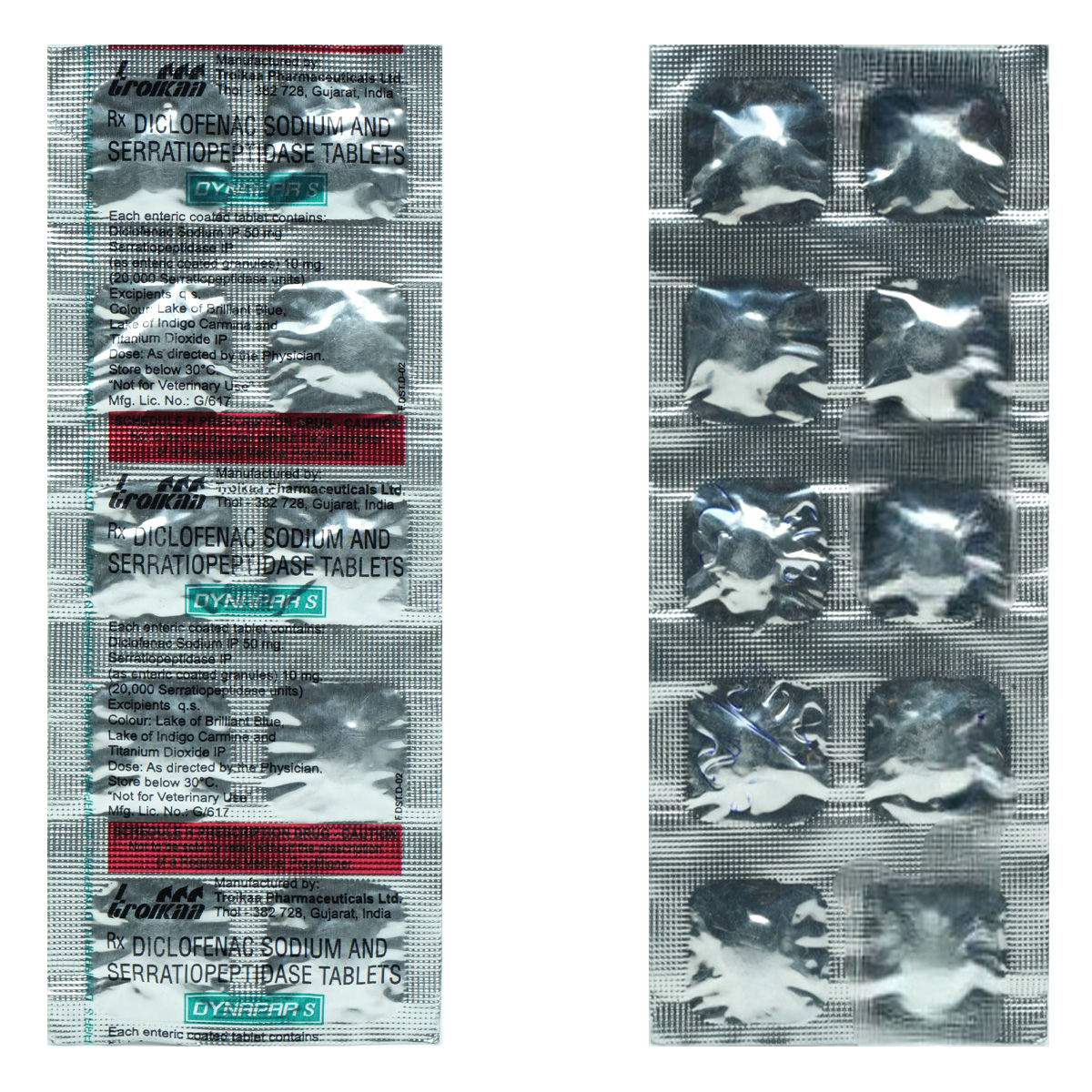 RX
RXDynapar S Tablet
₹171.50
MRP ₹190.50
10% off
 RX
RXSerra D Tablet 10's
₹134.10
MRP ₹149
10% off
 RX
RXHEALASE D TABLET
₹108
MRP ₹120
10% off
 RX
RXBludec-SP Tablet 10's
₹34.20
MRP ₹38
10% off
 RX
RXAldase D Tablet 10's
₹86
MRP ₹95.50
10% off
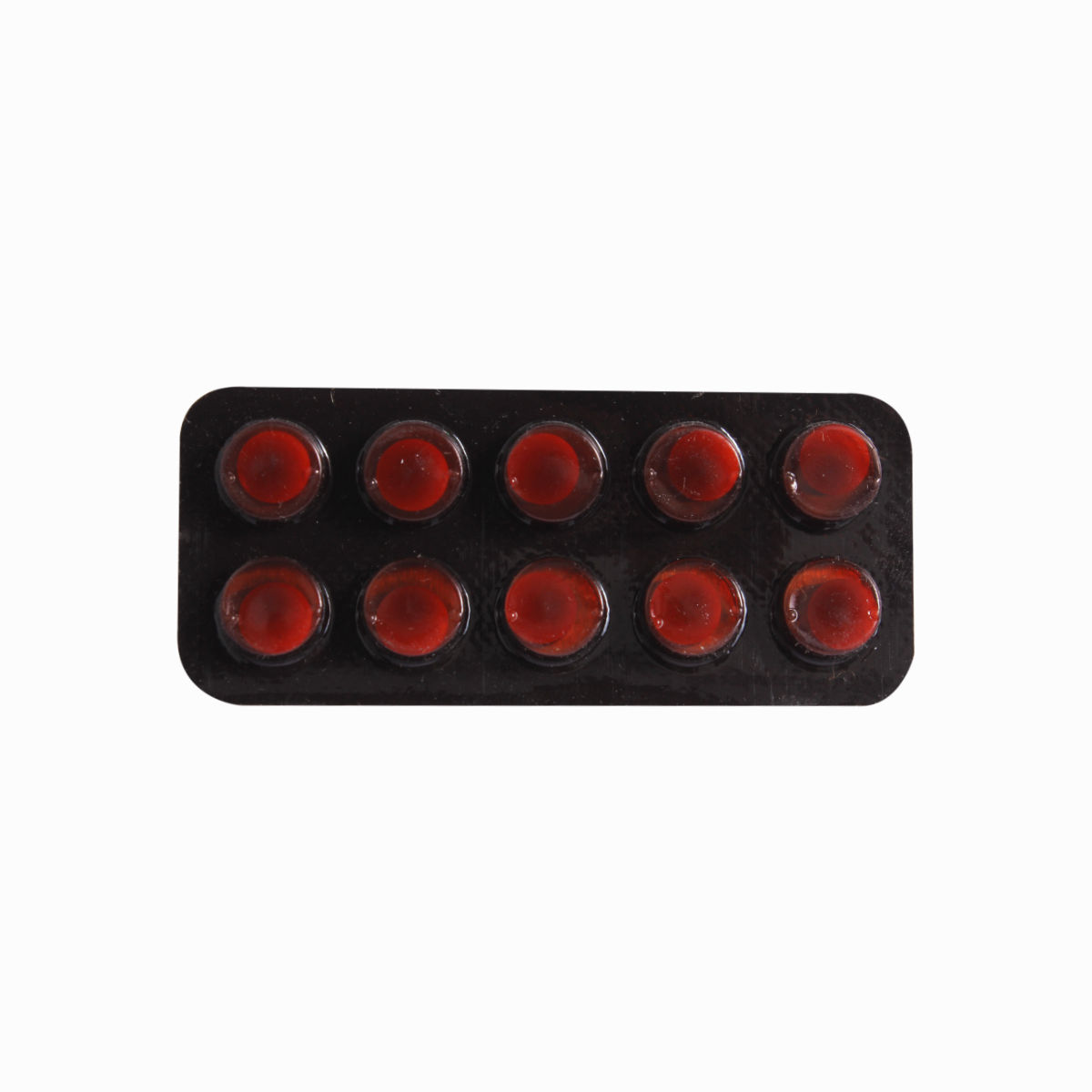 RX
RXDiser Tablet 10's
₹66.60
MRP ₹74
10% off
 RX
RXSpd 50mg Tablet 10's
₹67.50
MRP ₹75
10% off
 RX
RXSyser D Tablet 10's
₹67.50
MRP ₹75
10% off
 RX
RXSweep Forte Tablet 10's
₹75.60
MRP ₹84
10% off
Medicine for Cervical Pain
Cervical pain, commonly known as neck pain, is a prevalent issue affecting millions of people worldwide. It occurs when the muscles, joints, or nerves in the neck become strained, injured, or irritated. Cervical pain can result from various causes, including poor posture, muscle strain, degenerative disc disease, or even trauma from accidents. While the condition can range from mild discomfort to severe pain, effective medication and therapies can help manage and alleviate the symptoms. In this guide, we'll explore the different types of medications for cervical pain, their benefits, and how to use them effectively.
Types of Medicines Used for Cervical Pain
Several types of medicine for cervical pain, depending on its severity and underlying cause. Here’s an overview of the most common medications:
- Pain Relievers (Analgesics) Over-the-counter (OTC) pain relievers, like acetaminophen (Tylenol), are commonly used to reduce mild to moderate neck pain. These medications help alleviate the pain by blocking the pain signals in the brain.
- Non-steroidal anti-inflammatory Drugs (NSAIDs) NSAIDs like ibuprofen (Advil, Motrin) and naproxen (Aleve) reduce both pain and inflammation. These medications are particularly helpful for cervical pain caused by inflammation, such as muscle strains or conditions like arthritis.
- Muscle Relaxants Muscle relaxants like cyclobenzaprine (Flexeril) and methocarbamol (Robaxin) are prescribed for severe muscle spasms associated with neck pain. They help relax tight muscles and alleviate pain and stiffness in the neck.
- Corticosteroids For more intense inflammation or pain that doesn’t respond to NSAIDs, corticosteroids may be prescribed. These are strong anti-inflammatory medications that can be taken orally or injected directly into the affected area. Prednisone is a common example.
- Topical Analgesics Topical creams or patches, such as those containing menthol or capsaicin, can be applied directly to the skin over the painful area. These products provide localised relief by either numbing the area or stimulating blood flow to help relax muscles and reduce pain.
- Antidepressants and Anticonvulsants For chronic neck pain, particularly if there is nerve involvement, doctors may prescribe certain antidepressants (like amitriptyline) or anticonvulsants (such as gabapentin). These medications can help manage nerve pain by modifying how the nervous system processes pain signals.
- Opioids (For Short-Term Use) In cases of severe neck pain where other treatments don’t work, opioids like tramadol (Ultram) may be prescribed on a short-term basis. However, due to the risk of dependence, opioids are typically reserved for severe pain and used for the shortest duration possible.
Benefits of Using Medicines for Cervical Pain
Using medications for cervical pain can offer several significant benefits, helping you manage discomfort and improve your quality of life. Here are some key benefits:
- Pain Relief: The primary benefit of cervical pain medications is the relief they provide from neck pain. Over-the-counter pain relievers like acetaminophen (Tylenol) and NSAIDs (ibuprofen, naproxen) can help reduce pain and make it easier to perform daily activities.
- Reduction of Inflammation: NSAIDs not only relieve pain but also reduce inflammation. This is particularly beneficial for conditions like muscle strain or arthritis, where inflammation contributes to pain and stiffness.
- Muscle Relaxation: Muscle relaxants, such as cyclobenzaprine, can help alleviate muscle spasms and tension in the neck muscles. This leads to improved mobility and decreased pain.
- Enhanced Mobility: By reducing pain and inflammation, these medications can improve neck mobility and flexibility. This allows you to move more freely and comfortably, enhancing your overall quality of life.
- Improved Sleep Quality: Neck pain can interfere with sleep, leading to fatigue and decreased well-being. Effective pain management with medications can help you get a better night's sleep, which is crucial for overall health and recovery.
Dosage & Usage Instructions for Cervical Pain Medicines
It’s crucial to follow proper dosage and usage instructions when taking medications for cervical pain to ensure maximum benefit and reduce potential side effects.
- Pain Relievers (Analgesics): Typically taken every 4 to 6 hours as needed for pain relief. For acetaminophen, do not exceed 3,000 mg per day to avoid liver damage. It’s advisable to take them with food to reduce stomach irritation.
- NSAIDs (Non-Steroidal Anti-Inflammatory Drugs): Usually taken every 4 to 6 hours with a meal or after eating to reduce stomach irritation. Avoid exceeding the prescribed amount, as long-term use can lead to side effects like stomach ulcers or kidney issues.
- Muscle Relaxants: These are generally prescribed for short-term use, with typical doses of 2 to 3 times a day. They can cause drowsiness, so avoid operating heavy machinery or driving after use.
- Corticosteroids: Follow your doctor’s specific instructions, especially when using oral steroids. For long-term use, tapering the dose may be required to avoid withdrawal symptoms. Always use as prescribed.
- Topical Analgesics: Apply creams or patches directly to the affected area, usually 3 to 4 times a day. Be careful not to use these products on broken or irritated skin.
- Antidepressants and Anticonvulsants: Dosages vary depending on your specific condition and response to treatment. These medications can take a few weeks to show their full effects, so be patient and continue as prescribed.
- Opioids: Typically prescribed for very short durations due to the risk of dependence. Always use exactly as directed by your healthcare provider to avoid potential overdose or dependency.
Where to Buy Medicines for Cervical Pain?
You can easily order medicine for cervical pain from Apollo 24|7 through their website or mobile app. The platform offers a wide range of treatments, including pain relievers, muscle relaxants, and topical medications, all available for home delivery. Ordering online provides convenience and ensures you have access to the medications you need, right at your doorstep. Simply browse, order, and track your medicines with ease on Apollo 24|7 for a hassle-free experience.
Frequently asked questions
Yes, mild cases of cervical pain can be managed with lifestyle changes, physical therapy, and non-medical treatments like hot/cold therapy and massage. However, severe pain may require medication for relief.
Pain medications should only be taken as needed. It’s important to follow your healthcare provider’s advice on duration to avoid long-term side effects or dependency.
Muscle relaxants are typically prescribed for short-term use to address acute pain or spasms. Long-term use should be closely monitored by a healthcare provider.
If your pain persists or worsens despite taking medication, consult your healthcare provider. Further testing, alternative treatments, or a referral to a specialist may be necessary.
Opioids may be effective for severe, short-term pain, but they should only be used under the strict supervision of a healthcare provider due to their potential for dependence and side effects.
